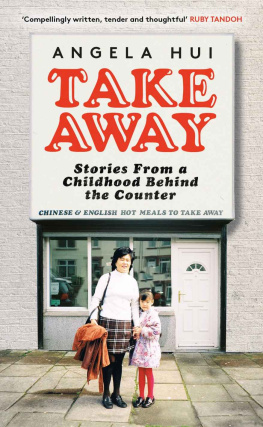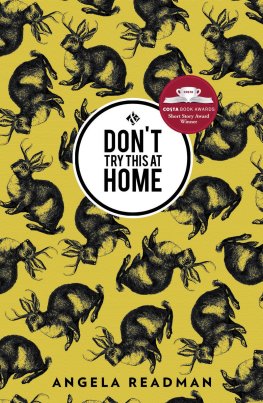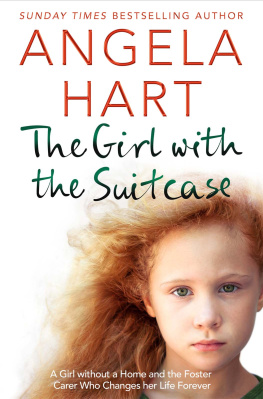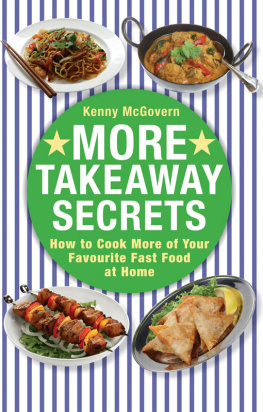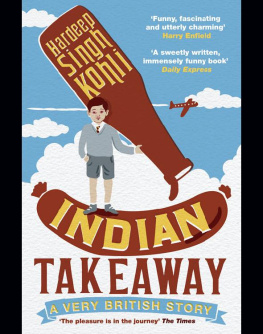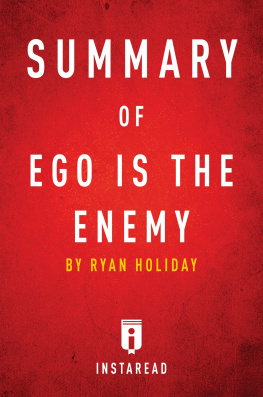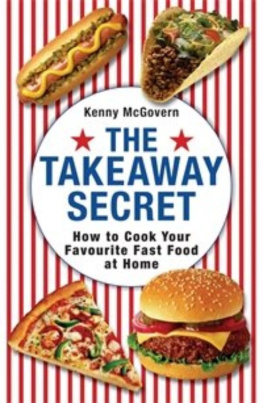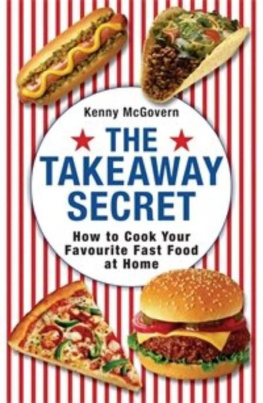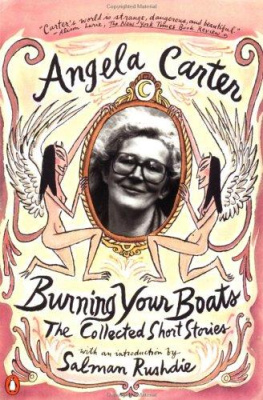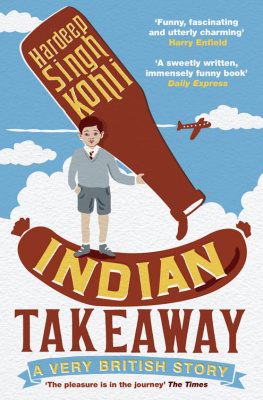Angela Hui - Takeaway: Stories from a childhood behind the counter
Here you can read online Angela Hui - Takeaway: Stories from a childhood behind the counter full text of the book (entire story) in english for free. Download pdf and epub, get meaning, cover and reviews about this ebook. year: 2022, publisher: Orion, genre: Home and family. Description of the work, (preface) as well as reviews are available. Best literature library LitArk.com created for fans of good reading and offers a wide selection of genres:
Romance novel
Science fiction
Adventure
Detective
Science
History
Home and family
Prose
Art
Politics
Computer
Non-fiction
Religion
Business
Children
Humor
Choose a favorite category and find really read worthwhile books. Enjoy immersion in the world of imagination, feel the emotions of the characters or learn something new for yourself, make an fascinating discovery.
- Book:Takeaway: Stories from a childhood behind the counter
- Author:
- Publisher:Orion
- Genre:
- Year:2022
- Rating:4 / 5
- Favourites:Add to favourites
- Your mark:
- 80
- 1
- 2
- 3
- 4
- 5
Takeaway: Stories from a childhood behind the counter: summary, description and annotation
We offer to read an annotation, description, summary or preface (depends on what the author of the book "Takeaway: Stories from a childhood behind the counter" wrote himself). If you haven't found the necessary information about the book — write in the comments, we will try to find it.
Angela Hui: author's other books
Who wrote Takeaway: Stories from a childhood behind the counter? Find out the surname, the name of the author of the book and a list of all author's works by series.
Takeaway: Stories from a childhood behind the counter — read online for free the complete book (whole text) full work
Below is the text of the book, divided by pages. System saving the place of the last page read, allows you to conveniently read the book "Takeaway: Stories from a childhood behind the counter" online for free, without having to search again every time where you left off. Put a bookmark, and you can go to the page where you finished reading at any time.
Font size:
Interval:
Bookmark:
A beautiful book: compellingly written, tender and thoughtful. It shines a light onto a part of our food culture thats beloved and yet often undervalued in food writing and criticism. I felt lucky to learn more about the people, craft and history behind the takeaway counter, and was touched by your disarming honesty and warmth. I loved it
Ruby Tandoh, author of Cook As You Are
The anecdotes, the storytelling coupled with delicious sounding recipes make you not only want to get in the kitchen but to find a way to be friends with Angela just so you can hear more! This is the type of book that I would buy for friends on repeat, safe in the knowledge that they too would love it
Ravneet Gill, author of Sugar, I Love You
Takeaway is a wonder: A warm, incandescent memoir about identity, food, family, relationships. Its so affecting I read it with a lump in my throat
Annie Lord, author of Notes on Heartbreak
This book deeply touched my heart as well as my taste buds! A visceral memoir like no other! So grateful for its existence!
Naomi Shimada, author of Mixed Feelings
Angelas writing is so relatable. Chinese takeaway cant taste the same again when you know how much love, sacrifice, and soul families have put into each dish. The descriptions of food are spot on, I could taste them in my mind finally takeaway food is represented wholeheartedly by someone who really gets it
Elaine Chong, BBC Journalist
[Takeaway] points to something very universal: about food, about labour, about survival in a new place, about shame, and about the inheritance of generational trauma. It also happens to be exceptionally funny. I loved it and found it very moving, both as a memoir, a thriller, and the villain origin story of Britains most exciting young food writer
Jonathan Nunn, editor of Vittles
Takeaway is a brilliant book that offers a unique perspective on something familiar to so many the Chinese takeaway. It is a story that is relatable to anyone who has felt on the outside of mainstream British society yet is highly personal and feels like a fresh, hitherto untold perspective
Melissa Thompson, BBC Good Food columnist
Takeaway feels like coming home. It is a testament to the resilience of Chinese families and a tender reminder to cherish the many ways love is shown
Tori West, author of Its Not Just You
For , , and
Shine bright, Lucky Star takeaway, you may be no more, but your memories live on

The East and Southeast Asian (ESEA) community in the UK and across the world has been uniquely scrutinised. In March 2020 (when the first UK lockdown began), the Metropolitan Police reported a sharp spike in anti-Asian hate crimes, coinciding with the Covid-19 pandemic. Reported incidents increased by 179% and were 2.79 times greater than the number reported in the previous year. The misplaced fear and ignorance have prompted a rise in racism and attacks across the world. Viral videos of elderly Asian-American people being pushed to the floor, beaten and slashed across the face, and the mass shootings in Atlanta in March 2021, leaving eight people dead six of them Asian women have brought the issue into the wider public eye. Hardworking family-run Chinese takeaways and restaurants have been hit hard, targeted and vandalised. For a lot of people, East and Southeast Asians were seen as the embodiment of the disease and that stigma definitely kept people away. Ethnicity is not a marker for disease and thats why its more important than ever to shine a light on these small, independent businesses during a period when theyre struggling to survive.
This is a book Ive been working on my entire life. Its also a book I feared to write, dredging up all the pain, the racial abuse, the alienation and the loneliness things I have spent most of my life burying. But before I sat down at my desk to take on the mammoth task of writing this book, I truly didnt grasp the magnitude of how alive racism against the ESEA community is. Of course, I knew bigotry has always been here in the UK, animosity soaked in deep, but hidden from view. The attacks that are happening now validate my long-held suspicions of racism towards ESEA people, backing up the tales of my family fending off drunk, racist customers and vandalism attacks on our shop. Coronavirus has only sharpened this inchoate prejudice and renamed it kung flu.
Chinese takeaways in the UK are often seen through the lens of exoticism and fetishisation. The East and Southeast Asian people who own these establishments are framed as unskilled workers, unhygienic and lesser beings. The Chinese takeaway in the UK deserves respect, not just for functioning in hostile environments, but because its a unique thing in itself. A spice bag in Ireland, Liverpools salt and pepper chips, and an old east London Chinese takeaway dish Jar Jow are all expressions of what it means to be Chinese in the West. Food is adapted to regional preference and local palates in order to survive, but its something that should be considered as innovative rather than looked down upon. Theyre willing to bend the food and bend the culture for what their clients need, serving anybody who would pay them. The dishes we sold at our shop were far removed from what my family and I typically ate for our family meal before service whole steamed sea bass, tong (Cantonese soup), steamed egg, kai lan choi (Chinese broccoli) with oyster sauce, lap cheong (Chinese sausage) and steamed spare ribs with fermented black beans and boiled white rice. Youll find recipes for these, and more of my childhood favourites, in the pages of this book. Anglo-Cantonese food is loosely based on traditional Cantonese cooking and this simplified, watered-down Western version is what Brits have come to know and love.
Chinese takeaways were born in the post-war years at the start of the 1950s. They were few and far between back then but, with the introduction of new fast-food chains, competition grew and so did Chinese takeaways. Before long, they were springing up all over the country and almost every village in the UK had their favourite local takeaway. At the height of its popularity in the 1970s, shops were opening at a rate of three a week, and towards the late 1990s there were more than 5,000 takeaways nationally; by 2002, the number of takeaways had almost doubled, reaching 9,500.
Despite its inauthenticity, the Chinese takeaway has proved to be a huge success for over 50 years and has become an institution across the UK. These Chinese outposts settled in largely white communities, offering mildly exotic Chinese food to Brits who had never even heard of soy sauce and were more accustomed to eating beans on toast. Takeaways tended to avoid direct competition, so youll rarely see more than one Chinese takeaway in the same village; this is why the ESEA community here in the UK feels so dispersed and isolated compared to big cities and communities like New York, San Francisco and Los Angeles. In the early days, Chinese ingredients werent as available as they are now too, so immigrant owners couldnt display the full extent of their gastronomy skills and had to use what was available. However, food is always more than the sum of its ingredients.
All my life Ive hated being East Asian, especially a Chinese takeaway kid, but how does a person learn to hate something that they were born into? We cannot choose the situation or backgrounds that we are born into, but we can choose what to do with the privilege we are given and make positive change for the next generation. I struggled to share my story or speak up about it for years. I lacked confidence, I shrank myself and obscured my identity to take up less space because I thought I wasnt important and that my story didnt matter. I created this feeling of never being good enough and it made me very self-critical; its something I am still trying to navigate through and grow out of now. This understanding of resilience through adversity is what will allow me to become a stronger person. Growing up as one of the few Chinese families in my village in the South Wales Valleys, I never felt normal or like I fit into any boxes. I had been indoctrinated since birth to assimilate, suppress my East Asian identity, and reach for white adjacency, not only for survival but as a goal and a way of life to get on in Britain. Being Chinese, Im technically a minority thats privileged, but excluded. East and Southeast Asians are considered so white-adjacent that they are no longer identified as a person of colour, but still experience systemic racism.
Font size:
Interval:
Bookmark:
Similar books «Takeaway: Stories from a childhood behind the counter»
Look at similar books to Takeaway: Stories from a childhood behind the counter. We have selected literature similar in name and meaning in the hope of providing readers with more options to find new, interesting, not yet read works.
Discussion, reviews of the book Takeaway: Stories from a childhood behind the counter and just readers' own opinions. Leave your comments, write what you think about the work, its meaning or the main characters. Specify what exactly you liked and what you didn't like, and why you think so.

